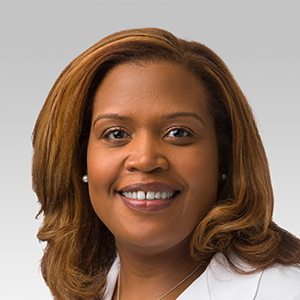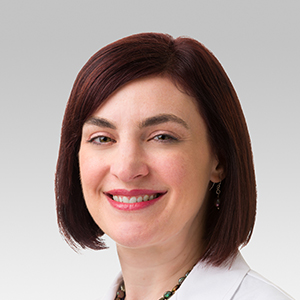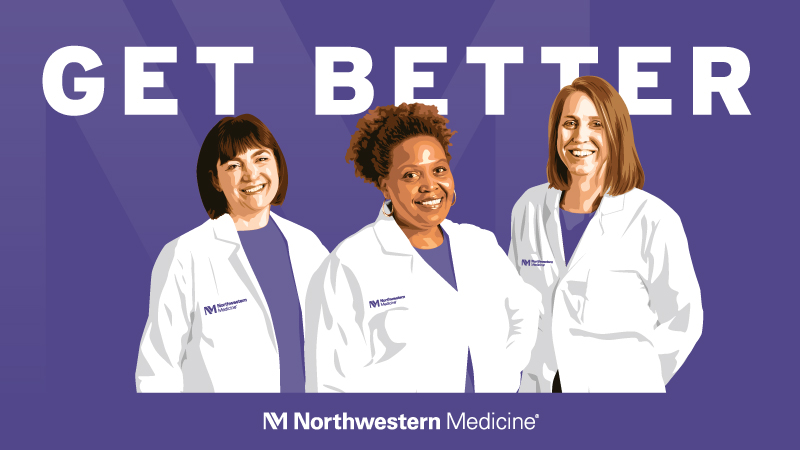SEASON 2 EPISODE 6
Get Palliative Care [Podcast]
Discussing the Difference Between End-of-Life Care and Palliative Care
Published June 2023
About this Episode
As odd as it sounds, death is a part of life. In this episode, our hosts chat with a palliative care physician to learn about the difference between palliative care and end-of-life care. You’ll get tips on how to have important conversations with your loved ones about the type of care you or they may want at all stages of life.
Featured Guest Experts

About the Get Better Podcast
Living a healthier life is a journey with no final destination: You can always get better.
Susan Russell, MD, Khalilah Gates, MD, and Michelle Prickett, MD, are three pulmonologists at Northwestern Medicine who help people get better from critical illnesses. They are also lifelong friends and lifelong learners who want to get better from head to toe.
These three physicians will learn alongside you as they interview other Northwestern Medicine experts about health and medicine topics meant to help you achieve better health.
Transcript
Russell [00:00:02] Let's get stronger.
Gates [00:00:04] Healthier.
Prickett [00:00:04] Calmer.
Russell [00:00:05] Smarter.
Gates [00:00:06] Better.
Russell [00:00:07] Living a healthier life is a journey, not a destination.
Gates [00:00:10] You can always get better.
Prickett [00:00:12] Let's get better together. Today, ladies, we are meeting with Dr. Julia Vermylen about end-of-life care. She's one of our palliative care specialists and really a helpful resource to learn about how we deal with end of life. It's a part of life. There's a start in the end, and we can make them both special.
Gates [00:00:35] Absolutely. Palliative care is something that, ladies, we deal with almost every day in our chosen profession of critical care, and even in our outpatient setting. And exploring the options so that our patients and their families understand what palliative care exactly is. I think that there are a lot of misconceptions about palliative care and understanding that palliative care means that we are going to treat your symptoms and help you live comfortably and with dignity.
Russell [00:01:03] And I don't think a lot of people realize that there's really strong data in the cancer literature that people who have palliative care involved with their cancer treatment live longer. I think it's important to realize that palliative care is not the end of life. It's actually part of continuing life. And so I'm excited to talk to Julia more about that. [music]
Gates [00:01:36] Today we're going to talk about the differences between palliative care and end of life care with Northwestern Medicine Palliative Care Physician Dr. Julia Vermylen. We'll leave this conversation with more knowledge that will allow us to more comfortably talk about these things with our loved ones. Welcome, Dr. Vermylen
Vermylen [00:01:56] Thank you so much for having me. This is really a pleasure to be able to be here today.
Gates [00:02:00] Thanks for coming. We're excited to have this conversation, as difficult as it may be.
Russell [00:02:04] For people out there listening who may not know the nuance, what is palliative care and how might that be different from hospice?
Vermylen [00:02:14] Absolutely. And thank you so much for letting me have the opportunity to be here, because I think this is a myth that a lot of people don't understand. Palliative care is a team-based care model that acts as an additional layer of support for patients with their families dealing with a serious illness. Although both palliative care and hospice are types of care that focus on improving the quality of life for patients and their families, they are slightly different, and I think people often lump them together. Palliative care is often offered to individuals at any stage of their disease and often recommended to be incorporated even early on from the time of diagnosis of a serious illness. And the hope is that by really focusing on helping to navigate the system of care, helping to support both patients and their family members, that we can really improve the quality of life for patients as they're living with a serious illness. Hospice care is usually offered in the end stages of a disease, and it's often aligned when either curative or disease-modifying treatments are no longer effective or no longer really helping the patient in the same way. And often at that time it's where patients are trying to focus their care actually away from the hospital or away from the doctor's visits. So it's a very different phase in the care. Palliative care is often used much earlier, and it's focused on helping to improve the quality of life when people are still having ongoing curative disease, modifying treatment, still seeing all of their doctors still coming to their appointments, still in and out of the hospital if they were to need that.
Russell [00:04:00] I think that's a great knowledge base to start from. So you mentioned that palliative care is something that can be involved much earlier in a disease process. When is the right time for somebody to meet up with palliative care doctors or at least ask their primary doctors about palliative interventions?
Vermylen [00:04:19] That's a great question, and the honest answer is that there isn't one set time for when someone should be offered palliative care. So many people think about palliative care once they receive a serious diagnosis. So an illness often that I think of that isn't going to be able to completely go away. Often palliative care could be involved to help make sure that we are helping the individual to feel as well as they can while they live with that illness, even if that is for years or sometimes even decades in the rest of their life. But the hope is to really help support them while they are facing that illness. For some, that's getting involved from the time of diagnosis. For others, it might be when they feel they need additional support, either coping with their illness or dealing with symptoms that are either coming from the illness or coming sometimes from the treatments of their illness.
Gates [00:05:12] I wanted to explore this notion of serious illness. I think that the association with palliative care is cancer. And it extends way beyond cancer. And so could you give us some examples?
Vermylen [00:05:25] So you are right that one common illness that people think about is cancer. And often I think of any cancer where it's thought that it's not going to be able to go away. But the hope is that someone might live with that cancer for many years and kind of keep it quiet while they continue on living their best life. But there's many diseases where we also cannot make that disease completely go away. So examples of that can be an advanced lung disease like COPD, or chronic obstructive pulmonary disease, or interstitial lung disease. There's lots of different ones. Also heart failure. Even there some neurologic conditions like Parkinson's disease or Alzheimer's disease. What I really think of are illnesses that are likely to not be able to be cured. And often it's an illness that's impacting their day-to-day life. So whether that's they have symptoms that they're dealing with, whether that's sometimes they go into the hospital, whether that's impacting kind of how they're coping or living day to day. But often there are illnesses that begin to impact our lives and it impacts how we interact with others. And that's where I start to think about how a team-based approach, having a team that really focuses on helping you feel as well as you can, making sure that we're aligning social supports that might be available in the community. We also have social workers on our team and chaplains. Often people have spiritual concerns or existential concerns that come up even for those that have not been religious throughout their life. They begin to ask kind of big questions when they have received a serious illness. So sometimes having a team that's able to actually spend time with you and help navigate how you are coping with the illness and also how you are communicating with your other providers and making sure that we have a plan in place that's guided by what matters most to you can be really helpful to make sure that you're getting the care that you want at this really important time in your life.
Russell [00:07:28] I think a lot of people might be surprised to know that palliative care is an outpatient clinic intervention. We've been doing it at Northwestern Medicine for many years. Tell me a little bit about the reasons or evidence behind why we shifted to having these services available in the outpatient setting.
Vermylen [00:07:48] Over the last few decades, there's been a growing movement to have palliative care integrated earlier and earlier from the time of diagnosis. And you're right that especially over the last probably 10 to 15 years, more and more studies have actually been able to show that patients who have palliative care involvement early from their time of diagnosis have improved quality of life not only for themselves, but also their family or caregivers that are helping them to navigate their care. Additionally, often have decreased anxiety or depression associated with their illness, improved function. And there are actually multiple studies now that have shown increased length of life when palliative care is involved early. There was one big study that showed when palliative care was integrated from the time of diagnosis, it was up in advanced cancer, patients lived much longer when palliative care was involved than it was not. And it was actually equivalent to the first line chemotherapy, how much longer that helps people live. It was the same amount of time as when palliative care was integrated early. So it's really helped lead physicians to begin to integrate palliative care earlier. And you're right that here at Northwestern, we have had integrated palliative care clinics, in particular in some of the lung disease clinics, as well as some of the oncology clinics, for well over a decade. And now we actually have integrated clinics also in the cardiology clinics, as well as some of the neuromuscular neurology diseases as well.
Gates [00:09:26] With palliative care being involved earlier, has similar outcomes to actually some of the treatment options. Why is that? What is the rationale behind that finding?
Vermylen [00:09:37] People often ask: What's the secret sauce? What is it that is allowing people to live longer when palliative care is involved? I don't know that it's one exact answer. I think it's multiple things. One thing is you're having a team that's really understanding what it is that you are experiencing and feeling and help actually align care that is right for you. Every person is going to experience their illness as well as various treatments differently and making sure that we have a team that's really attuned to addressing your symptoms can really help with that. For instance, if you have cancer and you're getting chemotherapy and you're having side effects from the chemotherapy, if those side effects are not well managed, you may actually need to stop your treatment; where if we can actually help you feel better, you may be able to actually continue that curative treatment longer. I think it also helps you feel well so that you can stay functional. It's important that you are able to not only survive, but survive well and get out of bed, and be with your friends and family, and go for a walk and experience life. That's why we do these treatments for any disease. And the goals of palliative care are to continue to help you do all of those things and live well and live better while dealing with this serious illness.
Russell [00:11:00] I know for some people just introducing this topic, even bringing it up is very uncomfortable. How do they start that conversation? And then what other resources are out there that can help people with making these decisions?
Vermylen [00:11:15] I think because people associate palliative care with end of life, there's this fear of bringing up palliative care and what that means. What I would say is: I often try to focus on how are you doing with your illness or how are you coping with something that you're dealing with right now, and really try to focus on the services and the supports that may be able to help both the patient and the family members. So if somebody is having symptoms, if someone, for instance, with lung disease is having a lot of shortness of breath, that's impacting their ability to get out of the house, thinking about how can we continue to help them feel better and do better in addition to talking to their doctors about that? A palliative care team may also be able to help think about how to support them so that they can continue to live well.
Russell [00:12:05] How do I bring up this topic when the time is appropriate to me? Seems like something we all struggle with. And it may not be just one diagnosis. It may be just seeing aging of friends or parents over time where you notice they're just not doing the things that they were doing three years ago, five years ago. Even if they don't have a new diagnosis, would you say that's something you would think about?
Vermylen [00:12:31] I think when in doubt, it never hurts to ask and to see if there are additional supports that can be supportive to your parents or to your loved ones. I think the other thing is that people often think about palliative care for patients who have had a few birthdays. As I like to say, I think that is absolutely true that as we've had more birthdays in life, sometimes we've also accumulated other medical conditions. And when you have multiple medical conditions, they can start to interact with each other and cause various challenges. And so a palliative care team might be really helpful. But palliative care also takes care of people at every age and stage. I have patients ranging in age from 17 years old up through their late nineties. And so it's really thinking about if you're dealing with a serious illness or trying to navigate multiple different doctors involved in your care or symptoms that are really limiting your ability to engage in your life in the way that you would like to a palliative care team may be a team that can help you both navigate those symptoms and also better coordinate your care so that you can live well.
Russell [00:13:36] One of the other things that I know comes up a lot in conversations with your teams and with our teams in the ICU is the concept of advance directives. Can you talk a little bit about what that is and how that factors into palliative care and treatments?
Vermylen [00:13:53] So “advance directives” is kind of a technical term, but in health care we use all the time. And what I've learned as a term that many people don't know what we're talking about when we say that and what advanced directives are. It's a form of legal documents that help indicate some of our preferences for the care that we would like to receive. That can be preferences for care that we would like to receive now, it can also be about preferences that we would like to receive in the future if we got sicker. One example of an advance directive is your healthcare power of attorney, which is a person that you can designate that you would want to make decisions on your behalf if somehow you were not able to communicate that. Now, this is a great example of an advanced directive that I would recommend every adult to think about, because even when we are really healthy and doing well, we could still have something unexpected. Like we get into a car crash and we would want to think about who would be that person that we think would make decisions on our behalf. There are other types of advance directives that indicate what type of care you would want to receive, and some of those documents are ones that are really helpful for people to fill out if they know specific things that they would or would not want if they were to get sicker and can discuss with their physician about how to fill those out. Overall, what I would say is that advance directives, or thinking about what is important to you, is something that is helpful. If we all start to think about, even when we're healthy, that we don't have to wait until we're not to begin to think about those things. What I will say, though, is that often our preferences or the choices that we may make can change over time. And that may be that when I'm 18, I may make different decisions about my health care than when I'm 95. I'm pushing this to the extremes, clearly. But similarly, sometimes those decisions change even at different points in our life because of personal changes or when we get diagnosed with different illnesses and we're dealing with different things. So often when someone has been diagnosed with a serious illness, it's a time where they may begin to question or make different decisions. That isn't true for everyone, but for some people that is true. So sometimes palliative care, if it is helpful, is one thing that we do is always try to make sure that the care that you're receiving is guided by what's important to you. So sometimes a palliative care team can help both patients, their families and also their healthcare teams sort that out and can spend extra time with patients and families thinking about where are we, where is this going and how do we help make sure that I'm living well now and living well in the future and try to make sense of kind of what to expect as we move forward.
Gates [00:17:00] Just like, birth is a natural part of life, unfortunately, so is death. And we're so willing to talk about birth plans and things like that, and not as much because it's uncomfortable about death. And so you said, you know, you should think about your wants your desires. But I think the other important part of that is making those known to the people that will carry that out. And so how do we approach that conversation? Do you have some tips for us?
Vermylen [00:17:30] It probably is a little bit different for each person, depending on kind of where they are in their life and also who it is that they're talking to. One first step is just beginning the conversation. Sometimes when we actually are faced with a serious illness, it's almost harder to bring up some of those conversations so that it almost is too scary in those moments. So sometimes talking about some of these things when you're actually doing well can be helpful. What I find for many people is a time where these conversations come up is actually when they experience either friends or family who are ill and they are reflecting on what they are seeing and other people and whether that feels like something that would be right for them if they were going through a similar situation. And I find that when people are starting to think about those things, it's good to share that with their friends and family so that there's at least some first off conversation that's happening. You're sharing some of those thoughts and feelings that are coming up, but also that you're actually sharing some of your preferences that may help later down the road. There are some helpful websites in particular that help open this conversation, especially if you are wanting to bring this up with family members. So one is called the Conversation Project. That can be really helpful, that actually has, like, a whole guide about both thinking about what are my preferences and how do I want to think about my care as I look into the future. And then it also goes into who do I want to share that with, and then how do I bring that up? And it goes through different examples about how to go through that. Another one is called Prepare for Your Care. That is also a helpful website that similarly walks through a few different, kind of, steps about how to think about this and how to talk to your loved ones.
Russell [00:19:27] As we bring this conversation to a close. Is there anything we haven't touched on about the field of palliative medicine that you think it's important for people to know or consider in their day-to-day lives?
Vermylen [00:19:38] If people take one thing away from this conversation is that they hear that palliative care is not just for people at end of life and that they hear that palliative care is about helping patients and their family members live better. That this is an additional layer of support that does not separate them from their other care providers. I think people often think that if they see palliative care, they can't see other people when that is far from the truth, and that hopefully this is additive and not something else and scary. You know, people hear what I do and think that what I talk about is death and dying. When I spend most of my time talking about life and what brings people meaning and joy and helping to center their day-to-day life around that so that they aren't held back by an illness or a symptom that they're dealing with.
Gates [00:20:29] This has been a wonderful conversation. Dr. Vermylen, thank you very much.
Russell [00:20:34] Thank you so much.
Vermylen [00:20:34] Thank you.
Russell [00:20:39] Thanks for listening to Get Better.
Gates [00:20:41] We hope you leave this podcast better than when you started.
Prickett [00:20:44] For more information, visit nm.org/healthbeat.








